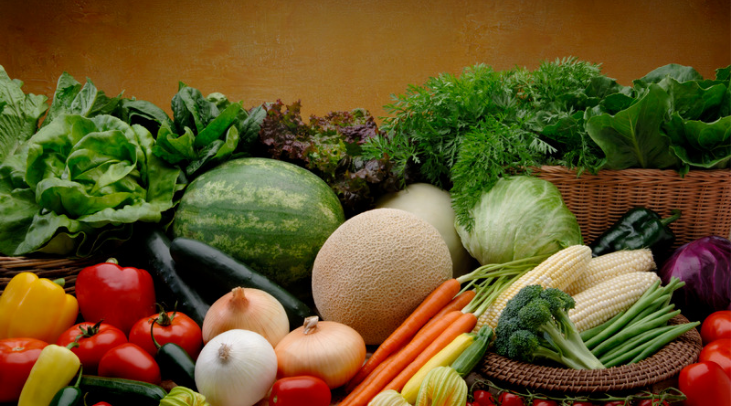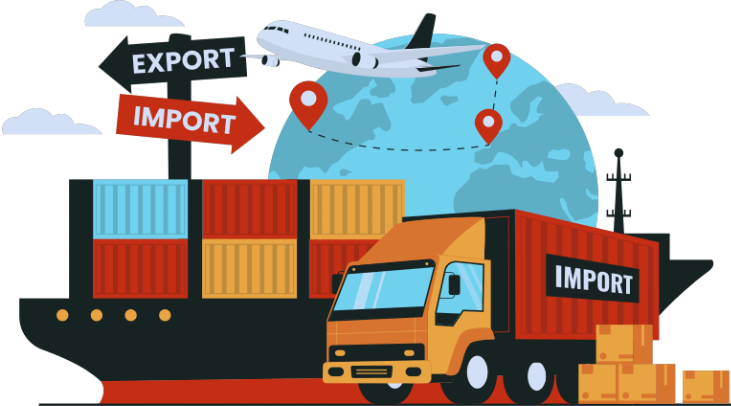Indian produce exports have gained a competitive edge globally, thanks to rigorous quality assurance practices that ensure trust and reliability. India has been a prominent player in global commerce, recognized for its vast array of agricultural products, textiles, pharmaceuticals, and more. As the demand for Indian goods on the international stage rises, the significance of quality assurance (QA) practices in the supply chain becomes increasingly evident. For exporters, particularly in agriculture and manufacturing, the establishment of strong quality assurance systems is crucial not just for compliance but also for cultivating enduring trust with international clients.
Defining Quality Assurance (QA) in the Export Arena, in Indian produce

Quality assurance encompasses the systematic procedures, protocols, and policies implemented to guarantee that products conform to specific standards and specifications. Within export businesses, QA serves not merely as a guideline but as a vital framework that upholds the consistency, safety, and reliability of products delivered to overseas markets. By focusing on pesticide-free produce and maintaining safe Maximum Residue Levels (MRL), exporters instill confidence among buyers in premium markets like the UAE, Europe, and the US, through freshhly picked.
The Impact of QA on Enhancing Customer Trust in Indian produce

1. Uniformity in Product Quality
A primary advantage of quality assurance practices is the consistency they provide. International clients prioritize predictability, particularly when purchasing large quantities. By following established QA standards, Indian suppliers can ensure their products maintain uniform quality—be it a shipment of organic spices, fresh fruits, or textiles. This predictability enables foreign buyers to make informed long-term purchasing decisions, assured of receiving the same quality with each order.
2. Adherence to International Regulations
Strict quality regulations for imported goods exist in many countries. For Indian exporters, meeting these standards is essential for seamless trade. Whether complying with the European Union’s rigorous food safety regulations or adhering to the U.S. Food and Drug Administration (FDA) quality criteria, quality assurance helps ensure products align with local laws and international certification standards, minimizing the risk of goods being denied entry, which could lead to significant and efficiency financial losses.
3. Transparency and Traceability
In the current global marketplace, buyers increasingly prioritize traceability and transparency. Consumers are more aware of the sourcing and manufacturing of products. Robust QA practices enable Indian exporters to offer clear documentation and certifications regarding product origins, production processes, and quality accreditations. This level of transparency reassures international clients that they are purchasing high-quality products that comply with ethical and safety standards.
4. Improved Product Safety and Risk Reduction
Product safety is vital, particularly in food exports. Indian exporters dealing in agricultural or processed food products must adhere to safety protocols to avert contamination, spoilage, or harmful chemical presence. A well-defined QA system confirms that products undergo testing for contaminants, pests, and diseases, thereby minimizing the risk of recalls or harm to reputation, and fostering greater trust among international customers who require guarantees of product safety.
5. Strengthening Relationships
By prioritizing QA practices, Indian exporters showcase their dedication to offering top-quality products. This commitment builds trust and loyalty among international customers. Over time, a reliable quality assurance reputation becomes central to the exporter’s brand, facilitating the development of stronger, more enduring relationships with clients worldwide. In a competitive global market where buyers have extensive options, distinguishing oneself through consistent quality provides a significant competitive advantage.
Essential QA Practices for Indian produce Export

1. Routine Inspections and Audits
To verify adherence to international standards, Indian exporters should perform regular inspections of both raw materials and finished products. Third-party audits are often necessary for certifications like ISO, Organic, or Fair Trade, helping to identify potential issues before shipping.
2. Certifications and Compliance
Achieving globally recognized certifications such as ISO 9001 (for quality management), ISO 22000 (for food safety), and Good Manufacturing Practices (GMP) can greatly enhance the credibility of Indian exporters, assuring buyers that their products meet international standards.
3. Supplier Audits and Education
Indian exporters must ensure that their suppliers also comply with rigorous quality standards. Conducting supplier audits and providing ongoing training on QA practices can help address issues before they arise. This is especially critical in sectors like agriculture, where the quality of raw materials significantly impacts the final product.
4. Quality Control Systems (QC)
Indian exporters need to have established quality control systems at various production stages. From assessing raw materials to evaluating finished goods, effective QC systems catch defects early, ensuring that only high-quality products reach international markets.
5. Utilizing Technology and Automation
Implementing technology can improve the efficiency and precision of QA processes. Automated systems can monitor product quality, manage inventory, and ensure uniformity in production. Digital documentation can also facilitate the smooth sharing of compliance and quality information with international clients.
In an increasingly globalized world, forging trust with international customers is essential for the success of Indian exporters. By adopting comprehensive quality assurance practices, Indian suppliers can maintain product consistency, meet international standards, and enhance transparency, all of which are critical for cultivating long-term relationships with global customers. For both emerging and established exporters, a commitment to quality means not only meeting but exceeding expectations—building trust, fostering loyalty, and ensuring ongoing success in the international marketplace, through freshhly picked.

